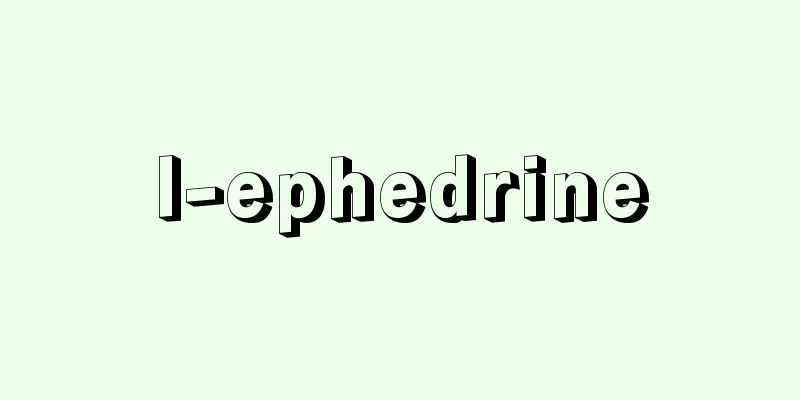Epic poem

|
Generally, it refers to a grand narrative poem about a legendary hero. In such a case, unlike lyric poetry, the purpose is not to sing of personal feelings, but to express the collective consciousness of the nation or people to which the author belongs. Old oral epics include The Tale of Gilgamesh, The Odyssey, The Iliad, The Edda, and Beowulf. They were gradually formed by collecting myths and legends that had been sung in ballads and ancient songs, and were recited by bard poets such as Homer to the accompaniment of lyres. The characteristic of epic expression is the method of starting in the middle of the story, telling past events, and leading to the climax and conclusion. Another characteristic is the use of certain modifiers to describe the nature of each character or event, such as "the cunning Odysseus" or "the dark wine-colored sea," and the use of long metaphors to describe grand scenes. Primitive oral epics were established in the Heroic Age, but then there are literary epics that followed that style and were written after the Roman era. Representative works include Virgil's Aeneid and Ovid's Metamorphoses. The former follows Homer's example and tells the story of the founding of Rome after the Trojan War, and its style is similar to Homer's, with the hero Aeneas as the protagonist, but Ovid's is a collection of disjointed episodes, with no central protagonist and no sense of a spokesman for the community. In the Middle Ages, works such as France's The Song of Rolland and Germany's The Nibelungenlied were written, as well as Dante's Divine Comedy (1307-21), and in the early modern period, Milton's Paradise Lost (1667), which deals with the biblical story of the loss of paradise, were produced. These all have epic characteristics in the sense that they unify the spirit of their times. Later, as civil society was established from the 18th century onwards, heroic figures who could unify the whole of society disappeared, and "pseudo-epic poems" that dealt with mundane subjects in an epic form, such as Pope's "The Rape of the Hair" (1712), became popular. However, the epic tendency did not disappear completely, and works from the Romantic period such as Melville's novel "Moby Dick" (1851) and Tolstoy's "War and Peace" (1864-69) are a kind of epic poem in prose. Modern poets such as Ezra Pound, W.C. Williams and Hart Crane have attempted epics of consciousness by using montage-like techniques instead of traditional narration. [Shunichi Niikura] JapanSome people assume that a group of folk songs in the Kojiki, such as "Mitsumitsushi, the sons of Kume, / In Ahafu, kamira ichimoto, / Sone ga moto, sone sprouts tsunagite, / Uchitesayamamu," may have been a lost age of epic poetry, supposing a heroic age, but in reality there is no national epic poem as we know it in the West. Even in the poetic prose of war stories such as The Tale of the Heike, the tone is based on personal expressions of "impermanence of all things" and "pathy of things" regarding the rise and fall of clans, and there is no basis for a sense of community in the national spirit. [Shunichi Niikura] Source: Shogakukan Encyclopedia Nipponica About Encyclopedia Nipponica Information | Legend |
|
一般的には伝説的な英雄についての壮大な物語詩をいう。その場合、叙情詩のように個人の感情を歌うのが目的ではなくて、作者の属している民族あるいは国民の共同の意識を代弁するのが特徴である。 古い口誦(こうしょう)叙事詩としては、『ギルガメシュ物語』『オデュッセイア』『イリアス』『エッダ』、それに『ベオウルフ』などがある。それらはバラードや古歌などに歌われていた神話や伝説を寄せ集めてしだいに成立したもので、ホメロスのような吟唱詩人がリラなどにあわせて朗誦したものである。叙事詩の表現の特徴は、物語のなかばから始め、過去のいきさつを語り、そしてクライマックスと結末に導く手法にある。各人物や事象に「策にたけたオデュッセウス」とか「葡萄酒(ぶどうしゅ)色の暗い海」など、性質を表す一定の修飾語をつけたり、また壮大な場面を描くために延々と長い比喩(ひゆ)を使ったりすることも、特徴の一つである。 原始的な口誦の叙事詩は英雄時代に成立したものだが、次にその形式に倣ってローマ時代以降に書かれた文学的叙事詩がある。その代表的な作品としては、ウェルギリウスの『アエネイス』、オウィディウスの『転身譜』などがある。前者はホメロスに倣って、トロヤ戦争後のローマ建国の物語を扱ったもので、その手法もホメロスに近く、主人公として英雄のアエネアスがいるが、オウィディウスになると、ばらばらな挿話の寄せ集めで、中心となる主人公もいなければ、共同体の代弁者の意識もない。中世にはフランスの『ロランの歌』やドイツの『ニーベルンゲンの歌』などのほかに、ダンテの『神曲』(1307~21)が書かれ、また近世には聖書の楽園喪失の物語を扱ったミルトンの『失楽園』(1667)などが生まれているが、これらはそれぞれの時代精神を統一する意味で、叙事詩的性格を備えている。 その後、18世紀以降は市民社会が成立するにつれて、社会全体を統一するような英雄的人物が消滅し、ポープの『毛髪掠奪(りゃくだつ)』(1712)のように卑近な題材を叙事詩的形式で扱う「擬叙事詩」が流行した。しかし叙事詩的志向が完全に消滅してしまったわけでなく、ロマン主義時代のメルビルの小説『白鯨』(1851)や、トルストイの『戦争と平和』(1864~69)などは散文による一種の叙事詩である。現代詩人ではエズラ・パウンド、W・C・ウィリアムズ、ハート・クレインなどは従来の語りにかわりモンタージュ的な手法を用いて意識の叙事詩を試みている。 [新倉俊一] 日本『古事記』のなかの「みつみつし 久米(くめ)の子等(こら)が/粟生(あはふ)には かみら一もと/そねがもと そね芽(め)つなぎて/うちてしやまむ」などの一群の歌謡に、英雄時代を想定して、失われた叙事詩の時代があったのではないかと想定する人も一部にいるが、現実には西欧でいうような民族叙事詩は一つも存在しない。『平家物語』のような戦記物語の詩的散文でも、一族の栄枯盛衰をめぐる「諸行無常」や「もののあはれ」の私的表白が基調をなしており、民族精神の共同体意識が基盤をなしていない。 [新倉俊一] 出典 小学館 日本大百科全書(ニッポニカ)日本大百科全書(ニッポニカ)について 情報 | 凡例 |
>>: Convention on the Elimination of All Forms of Discrimination against Women
Recommend
International Geodynamics Project
GDP stands for Geodynamics Project. It was a long-...
Mandibular skeleton - Science
…In a broader sense, it refers to the complex of ...
Tsubo - Pot
〘Noun〙 [1]① Courtyard. Refers to a garden between ...
Xu Shao - Xu Shao
Date of birth and death unknown. A Chinese charac...
HST (Railway) - HST
...A Japanese main line railway with a maximum sp...
Beekeeping - beekeeping
It refers to the practice of raising honeybees to...
EMA - Electronic Manufacturing Equipment
European Monetary Agreement: An agreement establis...
Onigajo (Saga) - Onigajo
…Hamasaki, the center of the town, is on the left...
Aukso - Aukso
…In the singular, it is called Hōra, and is the o...
Alcala Method - Arukara Method
…Ferdinand III and Alfonso X, father and son, vig...
Evodia officinalis (English spelling)
…[Sumihiko Hatsushima]. … *Some of the terminolog...
Hairpin - Kanzashi
A type of hair ornament. In the Asuka and Nara per...
Frontier - Kaitaku Zensen
…In Europe and other countries, it is often used ...
"Nights of Attica" - Attic Nights
...Roman essayist. Author of the 20-volume essay ...
Bab'e Leto (English spelling) Babeleto
…It doesn't occur every year, but it tends to...









